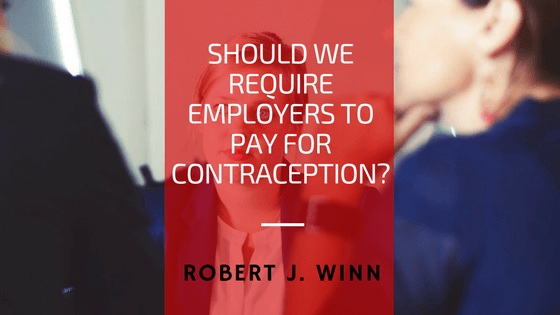October 6 fell on a Friday this year, and the events of the day kicked off the weekend on a low note. Midway through the morning, women across the country lost their guarantee to cost-free birth control as the Trump administration announced that privately held and publicly traded companies, as well as insurers, would no longer be required to provide the women in their employ with insurance plans covering their contraceptive needs. For those on the far-right, the day marked a win for religious liberty – and for others, it stood as a damaging infringement on women’s rights and further opened the door to legalizing discrimination against those in the LGBTQ community. As a healthcare professional with decades of experience working in family health, I’m inclined to believe the latter.
Let’s consider the numbers for a moment. According to statistics provided by the New York Times, over 55 million women currently receive birth control without needing to provide a copay. This low-cost access to contraceptive services is largely due to a provision in the Affordable Care Act which mandated that employers and academic institutions – with the exception of churches and other houses of worship – provide their employees with insurance plans that cover the high costs of birth control. And while many might not realize it, the costs for birth control without such coverage are high; according to Nora V. Becker, the researcher heading a study on the shifting costs of contraception six months after the implementation of the ACA, the Act saves the average pill-user $255 per year, and the average IUD-user $248. Needless to say, the savings are significant, especially for those women who might not otherwise be able to set aside the funds needed to cover the cost of birth control. Unfortunately, the methods of contraception with the lowest failure rate – the pill and IUD – have the highest affiliated cost.
With these numbers in mind, it becomes clear that insurance plans that cover the not-insignificant costs of birth control are vital to ensuring affordable contraception services to all women. However, some argue that employers who hold “sincerely held beliefs or moral convictions” against contraception should not be required to provide it to their employees; that pushing them to do so is an infringement of their religious rights. It is within this line of thinking that the administration rolled back coverage mandates for both privately-held and publicly traded companies. As of now, it is not clear just how many women will lose access to their birth control as a result of the policy change, or even what will constitute a “sincerely held belief.” Specifics aside, it seems likely that a significant number of women will find themselves responsible for paying for their own contraceptive needs regardless of whether their religious beliefs align with those of their employers. For some women, the sudden cost may be beyond what they can pay, leading to greater rates of unprotected sex and its common conclusion, unwanted pregnancy – both of which often involve higher medical costs.
For some, recent actions by the Trump administration mark a win for religious liberty – but is our government’s deference to privately held beliefs rather than medical needs worth its human cost? Women now worry that they won’t be able to afford their reproductive medical care. Furthermore, advocates for LGBTQ interests worry that a greater deference to the far-right will open the door to allowing discrimination against those within the LGBTQ community. If policies continue in the current direction, we may be in a position where our justice system supports the idea that loving, married parents cannot adopt a child from a church-run foster program because the organization disapproves of homosexuality rather than any legitimate concern of the parents’ qualifications. There comes a point where human needs must rise above religious ones in the eyes of the law; priority must be given to ensuring a fair nation for all. As Richard B. Katskee, the legal director of Americans United for Separation of Church and State commented for a recent New York Times article: “Religious freedom is the right to believe and worship as you see fit. It’s never the right to use government to impose costs, burdens or harms on other people. You can’t use the government to make other people pay the price for your religious beliefs or practices.”
I am worried. Not just for the women who find themselves unable to afford a basic need such as birth control, but for those who face the gradual erosion of their medical care and reproductive rights. I worry for a country that prizes religious ideology over medical necessity. I worry for us – and I intend to make my voice heard. I hope for that others will stand with me in speaking out against these measures.


